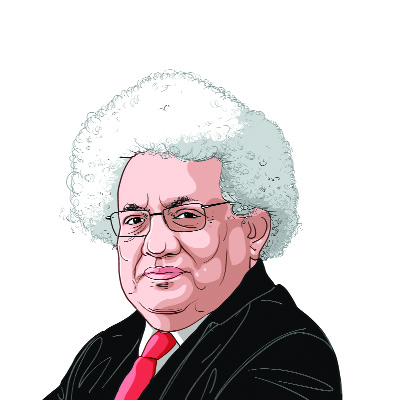Opinion Technocracy Trumps Democracy?
In Greece,the birthplace of democracy,the first blow fell last week.
In Greece,the birthplace of democracy,the first blow fell last week. The democratically elected Prime Minister George Papandreou,son and grandson of Prime Ministers,leader of PASOK,the Greek Socialist Party,was forced to resign. His sin was to have proposed a referendum in which the people of Greece would be consulted about the severity of the debt repayment schedule which Greece had to agree to.
This was a sensible proposition. After all,whatever the reasons for Greece to be in this dreadful debtor situation,it has a right to decide whether to repay the debts or just renege and go bankrupt. Iceland did exactly that. It got into debt due to the misbehaviour of its private banks. It consulted its citizens who refused to pay back their debt. Having won the referendum,Iceland was punished by the markets. After two years of hard slog,it has recovered and its creditorsmainly the UK and Netherlandshave agreed to restructure its debt.
Greece is,however,in the European Union and also in the Eurozone. This single currency was set up half-baked,more as a political union without the fiscal union necessary to make it work. With the severe crisis and the bond markets smelling blood,the Eurozone has morphed into a two-nation dictatorship over the other fifteen. Germany and France laid down the law that Greece could not have a referendum. The only power they had was that their economies were in better shape and their banks had lent money to Greece. If the UK and Netherlands had sacked the government of Iceland, how would the world have reacted?
Worse was to follow and Italys Prime Minister Silvio Berlusconi was the next to go only because the bond markets were bidding up the yield on Italian government bonds. Out goes the Prime Minister. Greece and Italy now have unelected prime ministers who are not even MPs; the only saving grace is that at least they are citizens of their country. Both are economists.
The idea that in rich countries, democracy would be the casualty of the economic crisis,invites serious comment. It is not even as if the local citizens had risen against the government. Nor have we had an army coup. This is a coup by fellow states of the EU. Obviously far from being a community,the EU is now a union of unequal nations in which the richer among the rich will call the shots on who governs. Why is this happening?
For all the talk about globalisation,few realised that in a globalised world,there is no economic sovereignty. In the old days,a country could borrow money and if it could not pay back,it could always print money,debauch its currency and cheat the creditors. But now the debts are often pensions of the citizens. They are owned by foreigners and even if domestic creditors hold them,they have a choice to dump them. Fiscal prudence is no longer a virtue; it has become a necessity. A government is no more than just a large corporation whose creditworthiness will be judged daily by the markets. Yes,the country can borrow as it likes but then it has to repay or face a crisis.
Globalisation can no more be reversed than King Canute could roll back the waves. We all made it possible. For fifteen years,we all enjoyed its fruits. Credit was cheap,mortgages were easy to get and spending on credit cards became the norm. We google and get on line to borrow,lend and spend.
Indias growth miracle since 1991 would not have been possible without globalisation. But as India has grown,its debts and deficits have not shrunk. India also has a huge debt and one-third of tax revenue is paid as interest on the debt,higher even than Greece.
India has now had three straight years of inflation rate higher than GDP growth rate which is faltering. New entitlements are being promised almost daily. If growth slows to low single digits,say,five per cent or lower,India could face a budgetary crisis. Dont say I did not warn you.


